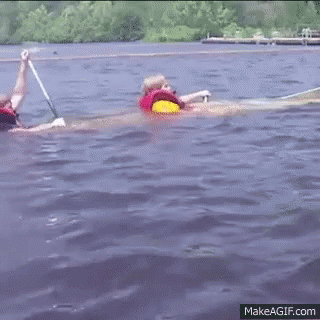Thames Water is in trouble

Hi this is ZipLaw! The smart water of newsletters: crisp and refreshing.
Here’s what we’re serving today:
- Thames Water is in trouble 🚰
- Is YouTube breaching its terms 📽️
- What does AI regulation mean for law firms? 🤖
- Law Firm application deadlines ⏲️
Thames Water is in trouble 🚰
Water companies are in real hot water. (I know master of puns)
On Wednesday, Rishi Sunak was preparing contingency plans for a temporary nationalisation of Thames Water as the company struggles to handle its debt.
Turns out the problem goes beyond Thames and might be the start of a water industry catastrophe.
But why is this happening now? Zip is here to boil it down for ya.
1. Problem 1: Lots of Debt
After being privatised with no debt in 1989, the water companies have racked up more than £60bn in debt.
Thames Water and its holding companies have total gross borrowings of £15.9bn. Its shareholders were supposed to add £1.5bn in support but the company has received just £500m so far.
In recent desperate moves, Yorkshire Water raised £500mn from shareholders. A clear sign of the UK’s water companies racing for money to survive.
2. Problem 2: Public backlash
Just when the water companies thought it couldn't get any worse, the public started demanding they stop turning rivers and seas into sewage dumps.
The government ordered £56bn of investment over 25 years to tackle the issue.
3. Problem 3: Inflation
Lastly, rising inflation has pushed up financing costs as well as the price of energy, labour and chemicals. All of which puts further stress on water companies’ finances.
In particular, over half of Thames Water’s debt is linked to inflation, meaning interest payments increase as inflation steps up (ouch).
⚖️ How does this impact Law Firms?
Banking and Finance Law
- Debt Restructuring: The process would involve renegotiating terms with creditors and preparing extensive debt restructuring plans, aiming to mitigate the looming threat of insolvency.
- Raising Capital: Lawyers may have to construct strategies to raise capital to deal with the financial crunch. This could involve negotiating new credit facilities or assisting companies in issuing bonds to get cash in.
Environmental Law
- Regulatory Compliance: Lawyers will be working to ensure that companies align with existing environmental laws and regulations. This includes adhering to new directives regarding sewage treatment and discharge.
- Lobbying and Advocacy: Lawyers in this department will interact with regulators like Ofwat and the Environment Agency, defending their clients' actions or negotiating the terms of environmental commitments.
Insolvency and Restructuring
- Administration Planning: They might have to brace for a possible administration scenario. This includes preparing for the transfer of company control to an appointed administrator, safeguarding the rights of creditors, and potentially overseeing the sale of parts of the business or advising on the temporary intervention by the government.
- Employee and Customer Rights: If the situation worsens, these lawyers with their employment colleagues would advise on protecting the rights of employees and customers. This could involve addressing customer concerns about service continuity in case of a sale out of administration e.g. a pre-pack scenario.
Google’s ad problem 💰️
Remember those YouTube ads that keep interrupting our funny dog video binge watching afternoons?
Yeah, those ones you can (finally) skip after five seconds.
Well, it turns out there might be something fishy going on. Here’s the breakdown:
1. What’s going on?
Google's YouTube has been accused of running its skip-after-5-seconds ads (called "TrueView") on parts of websites where they're not supposed to be.
Adalytics, a digital ads analysis group, found that these ads are appearing on hundreds of thousands of websites, playing silently and on a loop.
2. Why is this a problem?
This goes against Google's rules which promise advertisers that TrueView ads will only show up in quality locations i.e. what they call 'in-stream'. Meaning viewers see them “before, during, or after other videos on YouTube”.
Think of it like promising to run your ads on prime time TV, but instead, they end up on a local news channel at 3 AM. Not cool, Google.
3. Time for a refund?
Now this is a big deal because Google runs a HUGE ad business on YouTube. They made $6.69 billion in the first quarter of this year alone.
If this TrueView business is true, it could result in millions, if not billions, clawed back from YouTube.
What's Google's response? Basically, a digital shrug. They've denied the claims and defended the quality of their partner network. Your move, businesses.
⚖️ How does this impact Law Firms?
1. Commercial
- Investigating Ad Practices: Lawyers advising both Google and companies using their ad system will need to undertake an extensive review of advertising practices, especially those involving digital platforms like Google's YouTube. This will involve studying the contracts, ad placements, and any potential violations of agreements.
- Negotiating Refunds or Credits: There may be potential negotiations with Google for refunds due to non-compliance with the agreed-upon advertising policies. Lawyers would draft communication, represent their clients in meetings, and work towards securing refunds or future ad credits.
2. Litigation:
- Building a Case: If clients deem it worth their time and their money to pursue litigation, litigators will be tasked with gathering evidence, potentially working with experts like Adalytics, to build a strong case proving Google's alleged misconduct and its impact on advertisers.
- Class Action Lawsuits: If multiple companies are affected, a class action lawsuit could be on the horizon. These are more common in the US but we have seen some group litigation cases in the UK too (most in competition law). Lawyers would be involved in managing these lawsuits, coordinating multiple parties, and possibly working towards a settlement.
3. Compliance
- Advising on Regulatory Changes: Legal experts will need to stay on top of any new digital advertising regulations, advising clients on how to adjust their advertising practices accordingly.
- Defending Regulatory Enforcement Actions: If regulatory bodies like the Federal Trade Commission decide to take action against advertisers or Google based on this issue, lawyers would be needed to defend their clients' interests and negotiate any potential penalties or settlements.
We’re testing out a new feature this week: Industry Spotlights!
We’ll be picking out an industry and briefly analysing key trends which you can then use to stand out in law firm applications and interviews.
Today Zip wanted to talk about the growing movement towards regulation in Artificial Intelligence which has undoubtedly been the buzz word of 2023.
So here’s our top points for you:
1. The EU’s regulation wave
The European Commission's proposed legal framework on AI, the first of its kind, is set to redefine the legal landscape for AI developers. It aims to provide clear requirements and obligations for specific uses of AI. The framework categorizes AI systems into four levels of risk - unacceptable, high, limited, and minimal or no risk, with stringent requirements for high-risk AI systems.
2. The Pro-Innovation Approach of the UK
The UK government has a pro-innovation approach to AI regulation. The strategy identifies AI as one of five critical technologies and emphasizes the role of regulation in creating an environment for AI to flourish. They are currently consulting on the white paper but worth keeping an eye out for any proposal that come out.
3. What does this mean for law firms?
IMO, the above regulation is set to create a lot of work for lawyers, particularly as the world becomes increasingly reliant on AI technology. There are a few key areas in particular:
- Regulatory lawyers advising clients on the implications of the EU and UK regulatory approaches to assist clients using or developing AI tech in complying with the new rules.
- Data Protection lawyers advising clients on how to ensure they continue to process personal data in accordance with the UK GDPR or GDPR when using AI which is able to process huge amounts of data and make (at times biased and discriminatory) decision about it.
- Commercial lawyers assisting clients in redrafting and renegotiating terms and contracts to inset clauses for compliance with the AI regs.
- Corporate and Capital Markets advising clients on acquisitions, going public or mergers as more capital flows into the market - subject always to the regs.
- Intellectual Property assisting clients in protecting their IP in A tech they develop and ensuring adequate licensing terms which comply with the regulations.
It’s the end of the week (yay!) but it could also be the start of your next big career adventure.
Here’s our super briefing on the top job deadlines expiring soon!
- Fried Frank - Training Contract (30 June 2023)
- Withers - Training Contract (30 June 2023)
- Kirkland & Ellis - Training Contract (2 July 2023)
- Watson Farley & Williams - Training Contract (3 July 2023)
- Slaughter and May - Training Contract (7 July 2023)
- Norton Rose Fulbright - Training Contract (9 July 2023)
- Freshfields - Training Contract (13 July 2023)






